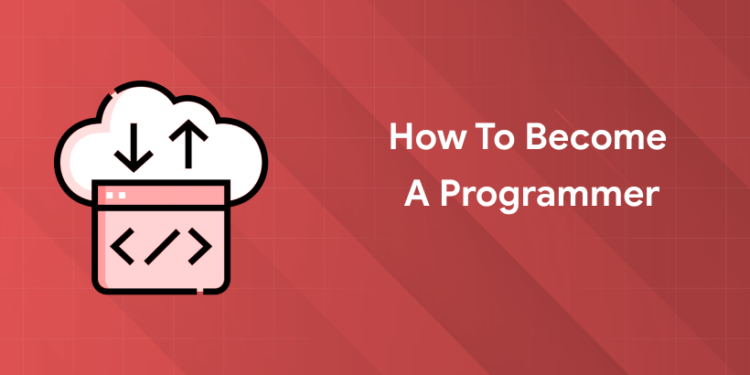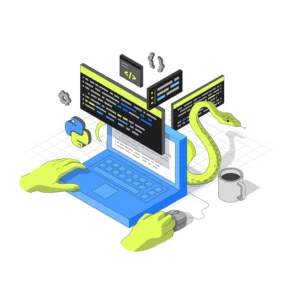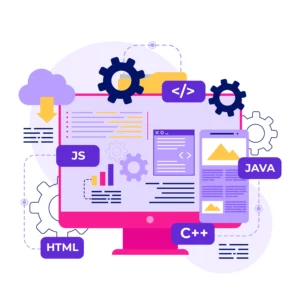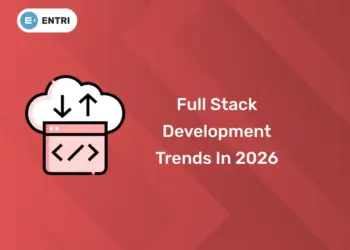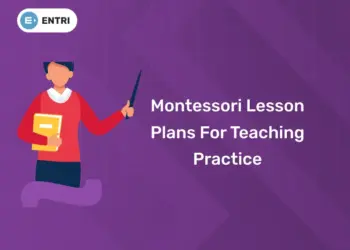Table of Contents
If you’re thinking about pursuing a career in programming, now might be the perfect time to make the switch. According to Forbes, the demand for skilled programmers continues to rise. Programming will also help you keep up with major trends in technology—and even better, get ahead of them! Get started on your new career today with these tips from industry insiders on how to start your career in programming/coding.
Get hands-on with our Python course – sign up for a free demo!
What is Coding?
Definition of Coding
- Basic Concept: Writing instructions for computers to follow.
- Purpose: Creates software, apps, websites, and more.
How Coding Works
- Programming Languages
- Examples: Python, JavaScript, C++.
- Syntax: Each has its own rules.
- Compilation and Interpretation
- Compilation: Converts code to machine language before running (e.g., C++).
- Interpretation: Runs code line-by-line (e.g., Python).
Types of Coding
- Web Development
- Front-End: Visual part of websites (HTML, CSS, JavaScript).
- Back-End: Server-side operations (Python, Ruby, PHP).
- Software Development
- Application Development: Software for different platforms.
- Systems Programming: Code for operating systems and hardware.
- Data Science and Analysis
- Data Manipulation: Processing and analyzing data.
- Machine Learning: Algorithms for learning from data.
Why Learn Coding?
Career Opportunities
- High Demand
- Job Market: Many industries need coders, like tech, finance, and healthcare.
- Job Security: Coding skills lead to stable, well-paying jobs.
- Diverse Roles
- Software Developer: Create software applications.
- Web Developer: Build and maintain websites.
- Data Scientist: Analyze complex data.
- Cybersecurity Expert: Protect against digital attacks.
- Freelancing and Remote Work
- Flexibility: Work as a freelancer for various clients.
- Remote Work: Many coding jobs can be done from home.
Problem-Solving Skills
- Logical Thinking
- Structured Approach: Coding enhances logical thinking.
- Algorithm Design: Create efficient problem-solving algorithms.
- Critical Thinking
- Troubleshooting: Fixing bugs improves critical thinking.
- Analytical Skills: Break down complex problems into simple parts.
- Creativity and Innovation
- Creative Solutions: Coding allows for innovative problem-solving.
- New Ideas: Develop new tools and applications.
Impact on Various Fields
- Business
- Automation: Streamline processes and save time.
- Data Analysis: Make better business decisions with data.
- Science and Research
- Data Processing: Handle large research datasets.
- Simulations: Model scientific phenomena.
- Art and Design
- Digital Art: Create digital art and animations.
- Game Development: Develop video games.
Personal Development
- Continuous Learning
- Evolving Field: Always something new to learn.
- Up-to-Date Skills: Stay current with new tech.
- Sense of Achievement
- Building Projects: Create working apps or websites.
- Problem Solving: Successfully fix coding challenges.
- Enhanced Cognitive Skills
- Memory and Focus: Improves with coding practice.
- Mathematical Skills: Enhances logical reasoning.
Accessibility and Resources
- Learning Platforms
- Online Courses: Many courses available for all levels.
- Free Resources: Access to free tutorials and guides.
- Coding Communities
- Support and Networking: Join forums and meet other coders.
- Mentorship: Find mentors and collaborate.
- Bootcamps and Workshops
- Intensive Training: Short-term, hands-on training.
- Real-World Projects: Gain practical experience.
How to Start Your Coding Career
1: Which of the following data structures allows elements to be added and removed in a Last-In, First-Out (LIFO) order?
1. Pick a Language
- Beginner-Friendly: Start with Python, JavaScript, or Ruby.
- Goal-Oriented: Choose based on your career plans.
2. Learn Basics
- Online Courses: Use platforms like Codecademy or Entri.
- Practice: Solve coding problems and build small projects.
3. Join Communities
- Online Forums: Connect with other coders on sites like Reddit or Stack Overflow.
- Local Groups: Attend meetups or hackathons.
4. Build a Portfolio
- Projects: Showcase your work on GitHub or personal website.
- Skills: Highlight languages and tools you know.
5. Look for Jobs
- Job Boards: Check LinkedIn, Indeed, or Glassdoor for entry-level positions.
- Network: Use your contacts and attend industry events.
6. Prepare for Interviews
- Practice: Review coding problems and algorithms.
- Communication: Be ready to talk about your problem-solving skills.
7. Keep Learning
- Stay Updated: Follow coding trends and new technologies.
- Courses: Take advanced classes to improve your skills.
Roadmap: How to Start Your Coding Career
1. Beginner (0-3 months)
- Week 1-2: Introduction to Coding
- Choose a beginner-friendly language (e.g., Python, JavaScript).
- Learn basic syntax and concepts through online tutorials or introductory courses.
- Week 3-4: Foundational Concepts
- Deepen understanding of variables, data types, conditionals, loops, and functions.
- Practice coding regularly on platforms like Codecademy or HackerRank.
- Week 5-6: Project Building
- Start building small projects (e.g., personal website, calculator app).
- Apply learned concepts to real-world scenarios.
- Week 7-8: Community Engagement
- Join coding communities and forums.
- Network with other beginners and experienced developers.
2. Intermediate (3-6 months)
- Month 3-4: Advanced Topics
- Explore object-oriented programming (OOP), data structures, and algorithms.
- Deepen understanding of coding principles.
- Month 5-6: Web Development Basics
- Learn HTML, CSS, and JavaScript.
- Build static web pages and simple interactive projects.
- Month 7-8: Collaboration and Version Control
- Start contributing to open-source projects.
- Learn version control using Git and GitHub.
- Month 9-10: Specialization and Advanced Learning
- Take intermediate-level courses in specific areas of interest.
- Explore advanced topics in coding and technology.
- Month 11-12: Portfolio Building
- Work on larger projects to showcase skills.
- Develop dynamic web applications or data visualization projects.
3. Advanced (6+ months)
- Year 2-3: Specialization and Certification
- Choose a specialization (e.g., full-stack web development, machine learning).
- Pursue advanced courses or certifications in chosen field.
- Year 3+: Professional Experience and Networking
- Apply for internships, entry-level positions, or freelance opportunities.
- Gain practical experience and build professional network.
- Continued Learning
- Stay updated with latest technologies and industry trends.
- Attend coding conferences, participate in workshops, and continue personal projects.
Top Jobs and Salary in Coding
1. Software Engineer
- Description: Develop and maintain software applications.
- Salary Range:
- Entry-level: Rs. 4,200,000 to Rs. 5,600,000 annually.
- Senior: Over Rs. 9,000,000 per year.
2. Web Developer
- Description: Design and create websites and web applications.
- Salary Range:
- Entry-level: Rs.3,500,000 to Rs.4,600,000 per year.
- Senior: Over Rs.7,500,000 annually.
3. Data Scientist
- Description: Analyze complex data to uncover insights.
- Salary Range:
- Entry-level: Rs.5,600,000 to Rs.7,000,000 per year.
- Senior: Over Rs.9,000,000 annually.
4. Machine Learning Engineer
- Description: Design and implement machine learning models.
- Salary Range:
- Entry-level: Rs.6,800,000 to Rs.8,500,000 per year.
- Senior: Over Rs.9,000,000 annually.
5. Cybersecurity Analyst
- Description: Protect computer systems from security breaches.
- Salary Range:
- Entry-level: Rs.4,200,000 to Rs.5,600,000 per year.
- Senior: Over Rs.7,000,000 annually.
6. Full-Stack Developer
- Description: Develop front-end and back-end components of web applications.
- Salary Range:
- Entry-level: Rs.4,200,000 to Rs.5,600,000 per year.
- Senior: Over Rs.7,000,000 annually.
7. DevOps Engineer
- Description: Streamline software development processes.
- Salary Range:
- Entry-level: Rs.4,200,000 to Rs.5,600,000 per year.
- Senior: Over Rs.7,000,000 annually.
8. Mobile App Developer
- Description: Design and develop mobile applications.
- Salary Range:
- Entry-level: Rs.3,500,000 to Rs.4,600,000 per year.
- Senior: Over Rs.7,000,000 annually.
Get hands-on with our Python course – sign up for a free demo!
Build Better, Together. 🛠️ Join the Entri Coding Community!
Beyond syntax, there’s strategy. 🚀 Join our subreddit for: Exclusive Coding Roadmaps 📍,Project Case Studies 📂 ,Interview Prep Tips 💡and more
👉 Join our Reddit communityConclusion:
In this blog we have discussed on how to start your coding career in 2025. We have also shared an example road map for the convenience of the aspirants. The top jobs and salaries discussed here will motivate you in your journey towards the coding career.
Build Better, Together. 🛠️ Join the Entri Coding Community!
Beyond syntax, there’s strategy. 🚀 Join our subreddit for: Exclusive Coding Roadmaps 📍,Project Case Studies 📂 ,Interview Prep Tips 💡and more
👉 Join our Reddit communityFrequently Asked Questions
What is the best programming language to start with?
Python is great for beginners due to its readability and wide use in various fields like web development and data science.
Do I need a degree to start a coding career?
No, many successful coders are self-taught or have completed coding bootcamps. Practical skills and a strong portfolio often matter more.
How can I build a coding portfolio?
Showcase your projects on GitHub, include any contributions to open-source projects, and create a personal website to display your work.
Is it possible to transition into a coding career from a different field?
Yes, many people successfully transition into coding careers from various backgrounds by leveraging online resources, coding bootcamps, and networking opportunities.


